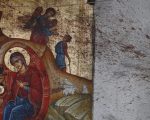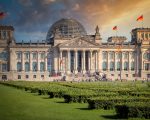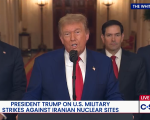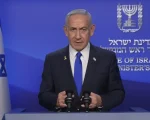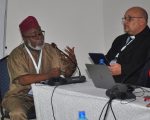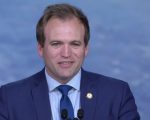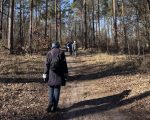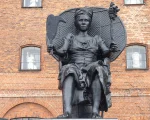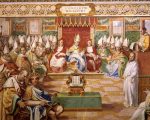A Church Bombing Leads Syria’s Christians To Consider Leaving As Foreign Fighters Remain
The attack has raised fears of a mass exodus of Christians similar to what happened in Iraq after the fall of Saddam Hussein in 2003 and the rise of sectarian violence.
As Germany’s Far Right Builds Ties With US Conservatives, Churches Push Back
Catholic and Protestant leaders in Germany are challenging a connection among far-right politicians in Germany and the U.S. that is built on a common rejection of immigrants.
Kenyan Christians Adapt as Churches Are Destroyed by Climate-Impacted Flooding
‘This is not just about Kenya,’ said climate researcher Godfrey Khamala. ‘This is about how climate change is eroding not only coastlines and crops, but culture, heritage and spiritual life. These churches are the canaries in the coal mine.’
Bombing God’s Love
This issue of A Public Witness unpacks President Donald Trump’s invoking of God during his speech announcing the U.S. had dropped massive bombs on Iran, thus joining Israel recent war against Iran.
Operation Mauling Scripture
This issue of A Public Witness opens a Bible and a (digital) newspaper to consider Israeli Prime Minister Benjamin Netanyahu’s roaring use of scripture to start a war.
African Church Leaders Address Decolonization and Reparations and Debate Their Role
At a three-day conference, African theologians and scholars considered how colonizing countries can make amends for historical wrongs and the place of forgiveness.
Johnnie Moore, Prominent Pro-Israel Evangelical, Named Chair of Gaza Aid Group
The Gaza Humanitarian Foundation, created within the past year, is a private group, formed with Israel’s blessing after it sought to circumvent the aid relief previously provided by the United Nations.
Berliners Are Rediscovering Their Faith Outdoors Through Local Pilgrimages
Christian pilgrimage walks are a way for Berliners and visitors of all ages to engage with their faith without stepping foot in a church.
Queen Mary vs. King David
This issue of A Public Witness explores a monument that upsets the political and historical stories being told (or not told) and challenges the religious claims we often make.
On Anniversary of the First Council of Nicaea, Christian Leaders Seek to Return to Ecumenism
Christian leaders stress that the council and its anniversary still have relevance in the modern day, despite theological divides.

